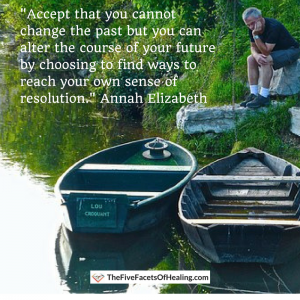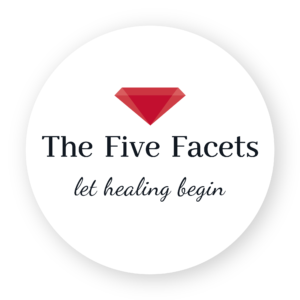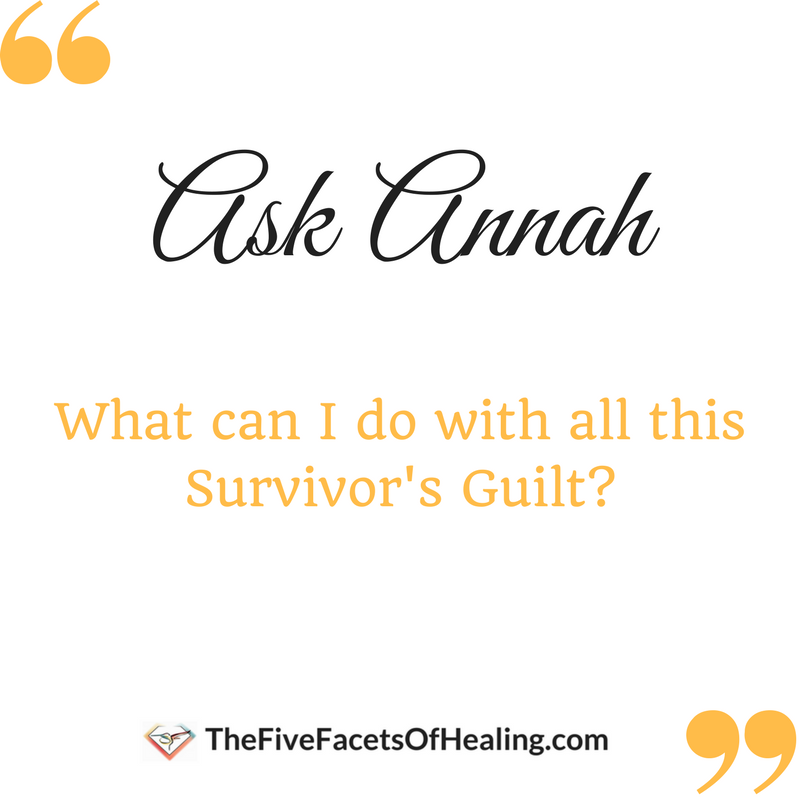Dearest Neighbor,
First, let me to tell you how sorry I am for your losses, for not only are you facing the death of someone you care about, you may also be experiencing other losses like the loss of emotional security, loss of dreams and hopes, and loss of companionship, to name a few.
Survivor’s guilt stems from so many different factors it can sometimes be difficult to trace.
Then there are those undeniable situations where you feel you should have died in the place of someone else or are feeling you are somehow not worthy of living.
Loss mamas sometimes feel that their children should have been spared, for those little lives were cut short before they had a chance to really get started or to live up to their potential.
Those who survive any accident where a fatality occurred often feel the struggle between being alive and wishing the person who died had lived instead.
Military men and women who have watched their comrades die in literal or figurative battlefields are regularly faced with survivor’s guilt.
And then there are those less obvious obstacles that don’t seem to be grounded in logic, or appear to be grounded in a self deprecating shame, blame, or out of a sense of overall helplessness.
As hard as it is to believe that you can overcome this emotion, you can find peace in whatever your situation is, Neighbor. You have everything you need and it’s all right inside of you.
Below are five, Five Facets Philosophy strategies you can use to help you find resolution in your survivor’s guilt.
Pay attention to your language and watch for signs of comparison.
We often compare ourselves to others: “So-and-so” would have been able to prevent this because [insert your whatever.]
We compare ourselves to our Previous Self: “Ten years ago I’d have been able to prevent this because or by [insert your whatever.]
And we compare ourselves to a Perceived Self: “I should have seen the writing on the wall because [insert your whatever.]
If you find yourself comparing, shift the language to one that is self supporting and recognize that we are all doing the best we can with what we have on any given day. That includes YOU.

Accept that you cannot change the past but you can alter the course of your future by choosing to find ways to reach your own sense of resolution.
Accept your grief as a part of your reaction to your loss event.
Accept that your guilt is neither uncommon, nor something to be pushed away. Well-intentioned people may try to convince you that “You have nothing to be guilty or ashamed of,” which can feel as if people aren’t listening to you and can make you doubt your own mind. Ultimately the person who has to believe it is YOU.
Accept that, though you may totally feel alone in your situation, there are those who can relate to what you are thinking and feeling and may be able to help you get out of your head and release some of those toxic thoughts and emotions you have bottled up inside.
Accept that you have everything you need to heal your conflict across your five facets.
Pay attention to your thoughts and emotions.
Are you experiencing grief in your academic, emotional, physical, social, or spiritual facets? Once you can identify where the conflicts lie, you can systematically begin choosing healing one step at a time.
Let’s use a military example where a squadron loses a comrade to suicide; the “1 in 22.” As a unit, the surviving members may be torn about how the group as a whole “failed” to recognize the symptoms; individuals may take on the burden of responsibility for being unable to have stopped the situation, or a combination of the two.
In these cases, it is important to determine what those social connections mean to you personally. Why do you feel responsible? How do you interpret this with regard to your own humanity/worth/responsibility/[insert your whatever.]
Choose healing.
Choose to seek out the support or use the strategies you have available to you to find some peace in your questions. Be open t
o different strategies and to thinking outside of the box; sometimes your greatest rewards come from the seemingly least likely sources.
Choose vitality.
Keep your new way of thinking and feeling at the forefront of your mind.
Put Post-It notes in your car, on your mirrors. Use pictures, phrases, objects, music, journaling [insert your whatever] as daily reminders that you are worthy, you are loved, and that you are doing the best you can with what you have every minute of every day. Some people choose to get involved in community give-back events and programs to keep focusing on something good and whole.
You do not have to carry this burden alone, Journeyer. Reach out to safe people who can help you remember that you can triumph over tragedy. You’ve got this, Journeyer! I believe in you. I’m here if you need me.


